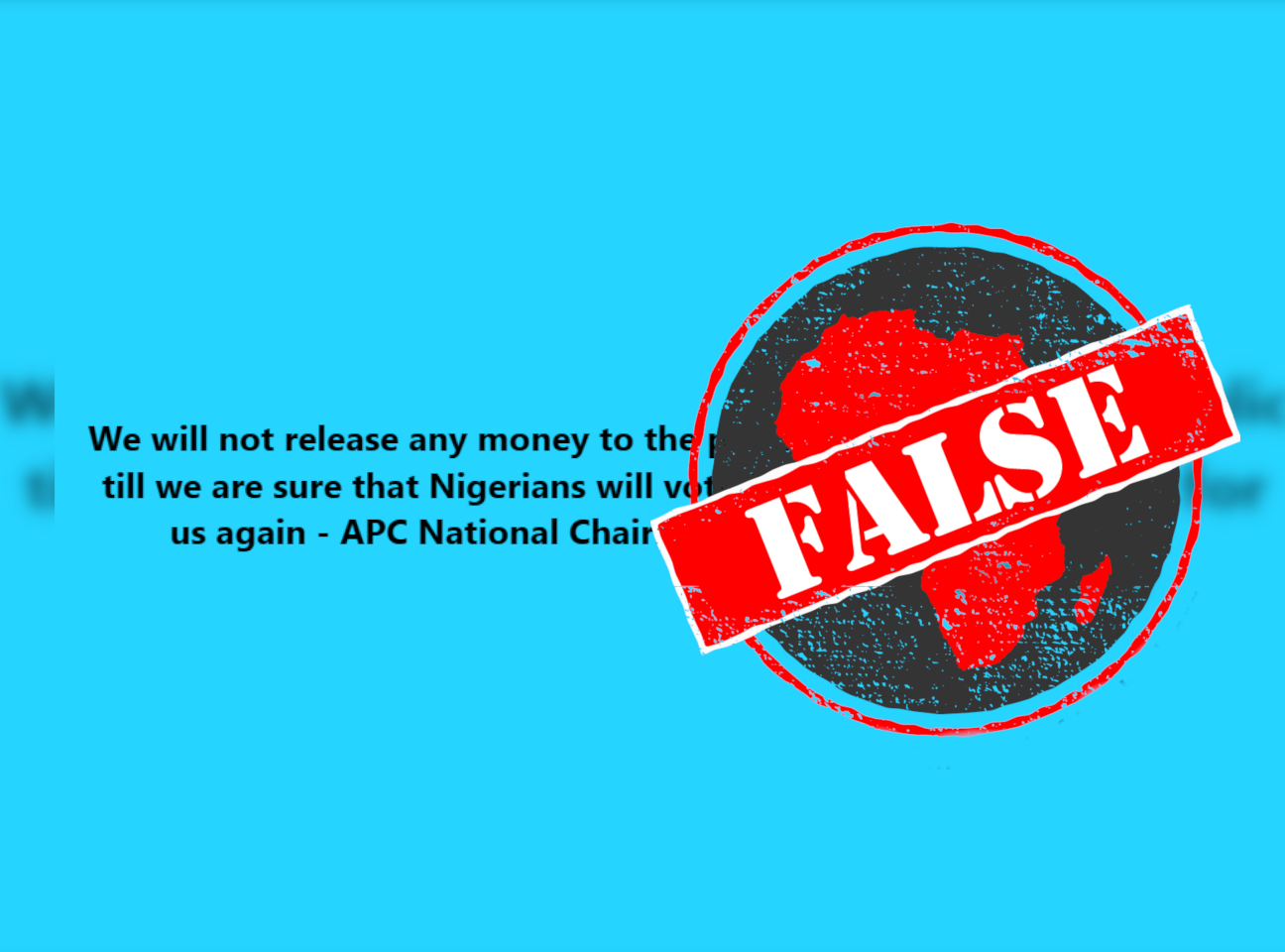IN SHORT: While the All Progressives Congress hopes to be re-elected in February 2023, there is no evidence the party has threatened to withhold public funds until it is sure Nigerians will vote for it.
“We will not release any money to the public till we are sure that Nigerians will vote for us again,” reads a post published on Facebook in Nigeria in late December 2022.
The post attributes the statement to the “chairman” of Nigeria’s governing All Progressives Congress (APC). This position is held by Abdullahi Adamu, a former governor of Nasarawa state in northern Nigeria. He became party chair in March 2022.
The APC has won the Nigerian presidential election twice, in 2015 and 2019. Its candidate in the February 2023 presidential election is Bola Tinubu.
We found the same quote on Facebook here and here,
But did Adamu say the APC would only meet its financial obligations to Nigerians if it was sure it would be re-elected?

No evidence of statement
The Facebook posts give no details of where and when Adamu is meant to have said this. Such lack of details is often a signal to be cautious about a social media claim, as it’s likely to be fabricated.
A search through the APC’s official Twitter account and website returned no evidence he’d said anything like it, or that anyone else in the party had.
There are also no reports in credible local news organisations that Adamu made the statement, which would have been the case if it were true.
With the election drawing nearer, there has been an increase in false quotes attributed to key political figures and this could affect people’s voting decisions.
We have fact-checked several of these, including here, here and here.
To avoid falling for false information online, read our guide on how to determine if a piece of information is reliable.
Republish our content for free
For publishers: what to do if your post is rated false
A fact-checker has rated your Facebook or Instagram post as “false”, “altered”, “partly false” or “missing context”. This could have serious consequences. What do you do?
Click on our guide for the steps you should follow.
Publishers guideAfrica Check teams up with Facebook
Africa Check is a partner in Meta's third-party fact-checking programme to help stop the spread of false information on social media.
The content we rate as “false” will be downgraded on Facebook and Instagram. This means fewer people will see it.
You can also help identify false information on Facebook. This guide explains how.


Add new comment